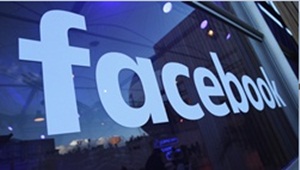Facebook said on Tuesday it has removed 32 accounts and pages believed to have been set up to influence the mid-term US elections in November.

The social media giant said that it had identified a political influence campaign that was potentially built to disrupt the mid-term elections, having detected and removed pages and fake accounts that had engaged in activity around divisive social issues.
It said it was in the "very early" stages of the investigation and did not yet know who was behind the pages, adding that the creators had gone to greater lengths to hide their identities than a Russia-based campaign to disrupt the 2016 presidential vote.
It described attempts to erase election interference as an "arms race".
In a blog, it said it had identified 17 suspect profiles on Facebook and seven Instagram accounts. It said that there were more than 9,500 Facebook posts created by the accounts and one piece of content on Instagram.
The company did not definitively link the campaign to Russia. But Facebook officials said some of the tools and techniques used by the accounts were similar to those used by the Internet Research Agency, the Kremlin-linked group that was at the centre of an indictment this year alleging interference in the 2016 presidential election.
Facebook said it had discovered coordinated activity around issues like a sequel to last year’s deadly ‘Unite the Right’ white supremacist rally in Charlottesville, Virginia. Activity was also detected around #AbolishICE, a left-wing campaign on social media that seeks to end the Immigration and Customs Enforcement agency.
“At this point in our investigation, we do not have enough technical evidence to state definitively who is behind it,” said Nathaniel Gleicher, Facebook’s head of cybersecurity policy. “But we can say that these accounts engaged in some similar activity and have connected with known IRA accounts.”
Facebook has shared some of the images posted by the accounts.
In total more than 290,000 accounts followed at least one of the pages involved, it added.
Facebook said the suspect accounts had also run about 150 ads on Facebook and Instagram, costing a total of $11,000.
The most popular fake accounts were Aztlan Warriors; Black Elevation; Mindful Being; and Resisters.
To cover their tracks, the "bad actors" went to far greater lengths than the Russia-based IRA had in the past. This included using virtual private networks (VPNs) to hide their location, and using third parties to run ads on their behalf.
The social network said it had not found evidence of Russian IP (internet protocol) addresses. But it did find one link between the IRA and the new accounts.
One of disabled IRA accounts shared a Facebook event hosted by the Resisters page. The page also briefly listed an IRA account as one of its administrators.
It added that it "may never be able to identify the source" for the fake accounts.
"The set of actors we see now might be the IRA with improved capabilities, or it could be a separate group," explained Facebook's chief security officer Alex Stamos.
"This is one of the fundamental limitations of attribution: offensive organisations improve their techniques once they have been uncovered, and it is wishful thinking to believe that we will always be able to identify persistent actors with high confidence."
Facebook has removed the suspect accounts, but says other legitimate page administrators unwittingly interacted with them. For example, after the Resisters account created a Facebook event for a protest on 10 to 12 August called "No Unite the Right 2", five other page owners offered to co-host the demonstration and posted details about transportation and locations.
Facebook said it had contacted the admins involved and would alert the 2,600 users who had expressed interest in the event.
The firm said it would also continue efforts to detect further misuses of its platform and work more closely with law enforcement and other tech firms to understand the threats faced.
Senate Intelligence Committee chairman Richard Burr, a Republican, said that the operation's apparent goal had been to "sow discord, distrust, and division in an attempt to undermine public faith in our institutions and our political system".
"Russians want a weak America," he added.
According to the BBC, this may look like another disastrous headline for Facebook, but it isn't.
Earlier in the year it promised to improve its so-far shambolic efforts at removing misinformation. It promised to hire more people, enlist outside help and work on new automated detection methods.
Today it was able to share a tangible, politician-friendly example of how those efforts came together, to quash a misinformation campaign before it apparently caused much harm.
And while Facebook was able to detect this specific operation, none of us really know how big this problem is.










